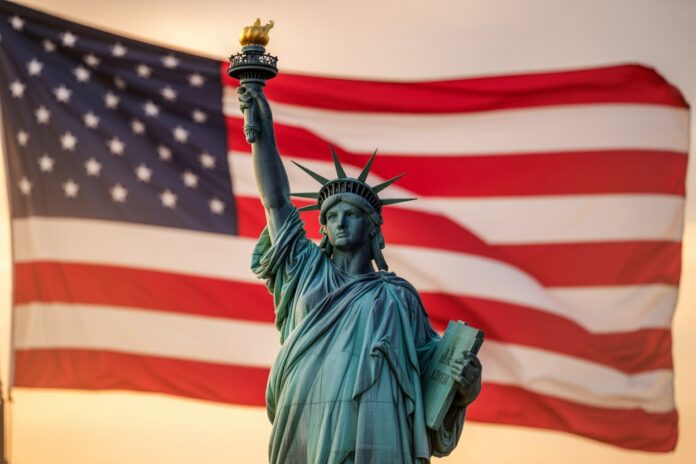Las Vegas Faces Tourism Challenges Amidst Visa Delays and Border Policies in 2025
Las Vegas has become the latest U.S. city to grapple with significant tourism setbacks due to visa delays and stringent border policies, joining key destinations like Los Angeles, New York City, San Francisco, Seattle, and Orlando. In 2025, these challenges led to a marked decline in visitor numbers, particularly affecting international markets.
Visa Delays: A Coalescence of Challenges
Visa processing struggles have become a primary hurdle for travelers wishing to visit Las Vegas. The city, renowned for its vibrant entertainment and diverse attractions, saw a 11% drop in international visitors during 2025, heavily impacted by reduced arrivals from Canada and Mexico. The lengthy wait times and increased likelihood of visa rejection have dissuaded many potential tourists, directly correlating with diminished bookings across hotels, casinos, and entertainment venues. This trend raises red flags regarding the sustainable economic vitality of a city heavily reliant on tourism.
Visitor Insights:
- Visitor Decline (%): 11%
- Impacted Markets: Canadian, Mexican travelers
- Reason for Decline: Visa delays and increased border scrutiny
- Economic Impact: Decreased hotel, casino, and entertainment bookings
Los Angeles: The Heavy Toll of Travel Hesitations
Los Angeles, another iconic destination, has faced an alarming 50% plunge in visitors from crucial markets within the same year. This downturn has hit Canadian travelers particularly hard, resulting in a 30% drop during peak summer seasons. Contributing factors include political unease and safety concerns surrounding travel, which together create a daunting atmosphere for international visitors.
Visitor Snapshot:
- Visitor Decline (%): 50%
- Impacted Markets: Canadian and Mexican visitors
- Reason for Decline: Visa difficulties and political issues
- Economic Impact: Significant challenges in hospitality, retail, and cultural sectors
New York City: Struggling with International Numbers
The cultural capital of the U.S., New York City, is dealing with a 6.2% decrease in international tourism, equating to a loss of approximately 800,000 visitors. Canadian tourists face substantial barriers when applying for U.S. visas, resulting in increased cancellations and postponed travel plans. The ripple effect is visible as tourism and retail sectors note a decline in revenue, complicating the city’s recovery from previous economic downturns.
Visitor Data:
- Visitor Decline (%): 6.2%
- Impacted Markets: Canadian and European travelers
- Reason for Decline: Visa accessibility issues and stricter regulations
- Economic Impact: Decreased spending in tourism, retail, and local hospitality
San Francisco: Affected by Cruise and Visa Restrictions
San Francisco has also experienced a slowdown, registering an 8% reduction in tourism, particularly from Canadian and Mexican travelers. Heightened visa application challenges and evolving border policies have curtailed international arrivals at a time when business and cultural events are needed most. As a city renowned for its technological and creative sectors, the economic ramifications are concerning for local industries reliant on international footfall.
Key Metrics:
- Visitor Decline (%): 8%
- Impacted Markets: Canadian and Mexican tourists
- Reason for Decline: Slow visa processing and border changes
- Economic Impact: Loss of revenue from conferences, hotels, and tourism
Seattle: Declining International Visitor Numbers
Seattle, traditionally a welcoming entry point for international tourists, is experiencing a 9% drop in foreign visits. With burgeoning tech events and tourism attractions typically drawing many international guests, the effect of lengthy visa processes and tighter border measures has translated into reduced attendance. This dip threatens important sectors of Seattle’s economy, especially those leveraging its connectivity to global markets.
Visitor Summary:
- Visitor Decline (%): 9%
- Impacted Markets: Canadian and Asian travelers
- Reason for Decline: Visa delays and border security measures
- Economic Impact: Diminished hotel and event-related revenue
Orlando: Theme Parks Feeling the Pinch
Orlando, the heart of family-oriented tourism, has not escaped these trends either. A 13% decline in international visitors has resulted primarily from prolonged visa wait times and political tensions. Iconic attractions like Walt Disney World and Universal Studios are feeling the impact as tourist numbers drop, posing considerable challenges for a city whose economy thrives on international visitation.
Economic Statistics:
- Visitor Decline (%): 13%
- Impacted Markets: Canadian and Mexican tourists
- Reason for Decline: Lengthy visa processes and ongoing travel uncertainty
- Economic Impact: Drop in attendance at key theme parks and attractions
Wider Impacts on U.S. Cities
Houston
Houston recorded around 53.9 million visitors in 2024 but has braced for a 5% decline in international arrivals.
Austin
Austin faces tourism struggles as visa issues particularly affect international students from countries like China and India, potentially hindering events such as SXSW.
Dallas
Dallas is also in a tough spot, with an 8% decline in international visitors as rising tariffs and visa issues deter potential tourists from key markets.
San Antonio
In San Antonio, the tourism forecast for 2025 remains uncertain. Challenges arise from visa delays and market fluctuations despite new international routes being added.
El Paso
El Paso is handling dual crises with migrant and tourist flows facing obstacles due to stretched border resources and extended wait times.
Fort Worth
Finally, Fort Worth is experiencing an impact from visa delays and escalating political tensions, even after a strong 2024 performance with upcoming cultural events.
As Las Vegas and other major U.S. cities navigate these turbulent waters, the intertwined challenges of visa processing delays and border scrutiny present significant hurdles. The long-term repercussions for economies heavily linked to tourism will require careful consideration and strategic planning.
